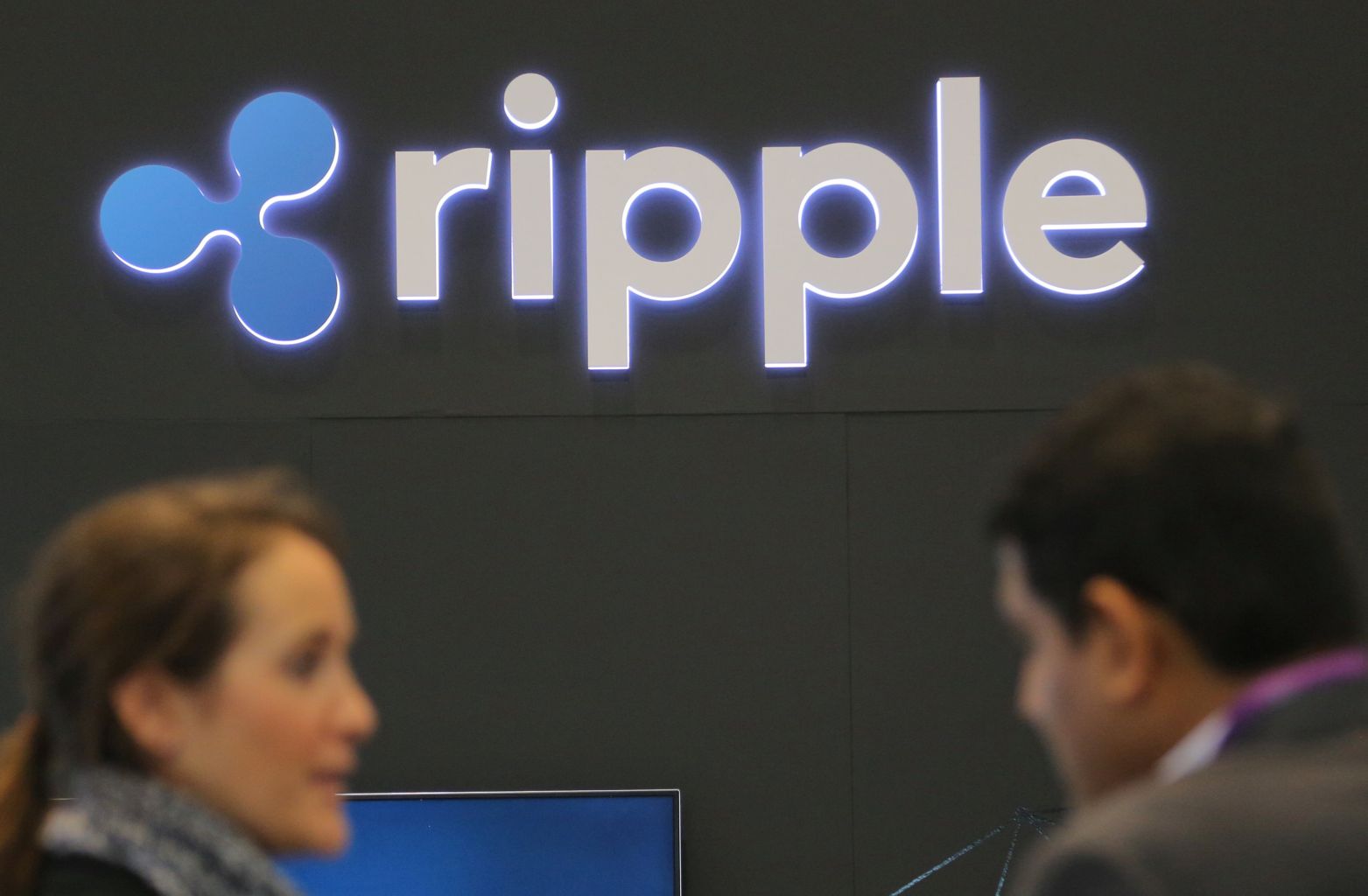Cryptocurrency player Ripple keen to set off blockchain waves in Singapore
Sign up now: Get ST's newsletters delivered to your inbox

The logo of blockchain company Ripple at the SIBOS banking and financial conference in Toronto, Canada on Oct 19, 2017.
PHOTO: REUTERS
Follow topic:
SINGAPORE (THE BUSINESS TIMES) - Fresh from setting up an office in Singapore in September, Ripple - the blockchain firm behind what was the world's second-most valuable cryptocurrency after bitcoin - is keen to engage the key financial centre in ways to develop the use of blockchain technology, said its top executive.
Ripple, which sees South-east Asia as a priority market with pressing remittance demands, is among the firms that have held early talks with the Monetary Authority of Singapore (MAS) for its technology to be part of the MAS's blockchain experiment in cross-border payments, said CEO of Ripple, Brad Garlinghouse, in an interview with The Business Times.
"Cross-border is where we think we can uniquely help," said Mr Garlinghouse, referring to talks with MAS, while noting that no deal has been firmed up. Singapore's regulator said last year during the Singapore Fintech Festival that it would experiment on cross-border payments using blockchain technology.
"When you send a wire transfer, it's a little like putting an envelope with a stamp on it, into the mailbox. You know your friend got the birthday card when she calls you," said Mr Garlinghouse.
Ripple offers blockchain technology to banks looking to speed up cross-border payments from days to seconds. The process of sending cross-border payments has been described as a black hole, as banks for years before have been unable to efficiently track transactions and their fees that are typically passed on to both corporate and retail customers.
It was only in 2017 that Swift - the dominant payment network service used by global banks - went live with a service so banks can speed up and more efficiently track cross-border payments to one another.
But this comes as the use of Ripple technology is gaining traction. Ripple said last year that Swedish bank SEB had processed more than US$180 million in payments for a large corporate customer between Sweden and the US using Ripple's technology.
Standard Chartered and India's Axis Bank in November launched a real-time cross-border payment service for corporates using Ripple's technology. The technology will be used to send Sing-dollar corporate payments from clients of StanChart in Singapore to accounts in Axis Bank, India's third largest private sector bank, so the banks can track any delays of payments, and fees.
To be clear, banks such as StanChart and Axis Bank are using Ripple's technology to process transactions fully in fiat money, that is, without Ripple's cryptocurrency, XRP.
But Ripple is also trying to sell its cryptocurrency XRP as a means of settlement when a bank wants to move money into a country but does not have a local-currency account held in a local bank there. As Mr Garlinghouse explained, Ripple aims to have XRP used for such cross-border payments, so that a bank can sell, for example, the greenback, into XRP in seconds, and convert XRP into another currency, say Sing-dollars, quickly.
Despite it being premature days for XRP's mainstream use, the cryptocurrency was the best performer of the lot last year, gaining by more than 300 times. It surged in the last days of 2017 after three Japanese credit card firms said they would use Ripple's technology. A group of Japanese and South Korean banks are also experimenting in using its technology to remit funds between the two countries.
What's worth noting is that banks with existing local-currency accounts in key markets are likely watching the viability of using XRP, because if regulators accommodate the proliferation of the use of XRP, this could eliminate the current need to pre-fund local-currency accounts and open up new markets for banks in a cost efficient way.
Banks hold capital and collateral against settlement risks, so a reduction in settlement time would translate to huge savings in the trillions, said Mr Garlinghouse.
The buying fever for XRP comes as well as people no longer see bitcoin as the panacea for all transaction problems, said Mr Garlinghouse. He noted that the transaction time for bitcoin is an average of four hours, while the transaction costs remain high.
"The transaction cost (for bitcoin) can be as much as $5 per transaction. If you used bitcoin to buy a coffee, the transaction would double the price."
XRP, according to Mr Garlinghouse, can do over 1,500 transactions per second at "a fraction of a penny". Ripple has said XRP can scale to handle the same throughput as payments giant Visa.
Started in 2012, Ripple has attracted investments from financial institutions such as Standard Chartered, Japan's SBI Group, Spain's Santander, and Thailand's Siam Commercial Bank.
It counts more than ten of the world's top banks as customers, and plans to double its 100-strong network by the end of this year, said Mr Garlinghouse, adding that Ripple should appeal to banks who are fretting over Big Tech competition.
"If you are a traditional bank, and Alipay is entering your market - or it could be Google, Facebook, WeChat, you pick - you can compete on a level playing field with digital-first technology. That gives you a fair fight," said Mr Garlinghouse. "If Google or Amazon launches some of these services, it's not going to take them three days to settle between the US dollar and the Singapore dollar."

